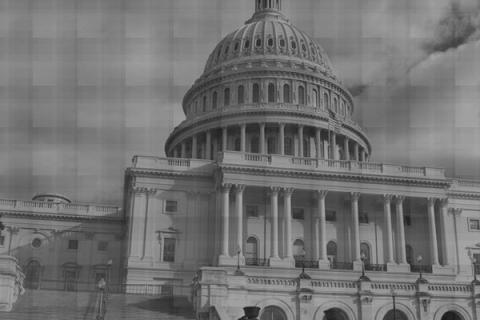These days, it seems like we are provided with new evidence of the American public’s desire for Independent and third party alternatives to the Democratic and Republican parties on a regular basis.
A Fox News poll released late last week found that a 57% majority of respondents think it would be a “good idea” if a third party were formed to run candidates against the Democrats and Republicans at all levels of government.
Incidentally, an astute 4% minority noted that such parties already exist, thus undermining the poll’s false presumption that there are no national third parties. Nonetheless, the 57% majority in favor of multi-partisan politics drew support from across the political and ideological spectrum, including 67% of Independents, 58% of Democrats, and 50% of Republicans.
It is no surprise that Independents desire a political alternative to the deadlock of bipartisan politics, but it bears repeating that a majority of Democrats and Republicans themselves have become so fed up with the Democratic and Republican parties that they think a national third party would be a good idea. The great irony, however, is that if the apparent majority of individuals who support the idea of Independent and third party alternatives to the Democrats and Republicans actually supported and voted for them, they would win!
The Democratic-Republican political establishment, along with their allies in the corporate media, expertly employ the doctrine of "lesser-evilism" to ensure that this does not happen. The argument is familiar enough. It is an axiom of the ideology that sustains the two-party state. It goes like this: a vote for a third party or Independent candidate will result in the election of the major party candidate you dislike more than the other; therefore you must support the lesser evil between the Democrats and Republicans.
Democratic-Republican party politics has reached such a state of degeneration and decay that the remaining supporters of the legacy parties can only justify that support by assuring themselves that, even though their party’s candidates are admittedly evil, at least they aren’t as evil as the candidates of the other legacy party. In this way, Democrats and Republicans make the lesser evil the enemy of the greater good.
The clearest example of this strategy at work today can be seen in the Republican Party’s ongoing co-optation of the tea party movement. If fully successful, this development will have been the greatest social-political tragicomedy in the United States since the Democrats co-opted the anti-war movement to ensure the continuation and expansion of the wars in Iraq, Afghanistan, and Pakistan.
Trent Lott is only the most recent establishmentarian Republican to openly admit to the party’s goal with respect to the tea party movement. The Washington Post reported this past weekend:
“Former Senate majority leader Trent Lott (R-Miss.), now a D.C. lobbyist, warned that a robust bloc of rabble-rousers spells further Senate dysfunction . . . As soon as they get here, we need to co-opt them."
Outspoken Republican Rep. Michelle Bachman has already begun such an effort in the House, having founded a “Tea Party Caucus” in the chamber just this week.
Because the tea party movement is so often treated as a monolith in the mainstream media, it is important here to distinguish between three different types of tea party groups: 1) some tea party organizations, and many of the most well-known, are nothing more than Republican Party front organizations 2) some are relatively non-partisan grassroots groups that are open to Independent and third party alternatives to the Democratic-Republican political cartel 3) others are fledgling third party political organizations dedicated to providing a viable alternative to the Democratic and Republican parties.
Among self-described tea party activists who have ironically proven incapable of declaring their political independence from the reigning two-party state, it is virtually an article of faith that any third party tea party organization is part of a vast Democratic conspiracy to “split the conservative vote.” In this way, they aim to shore up support for the Republican lesser evil.
In one of the more extreme examples of this genre of political attack, Republican Danny Tarkanian went so far as to allege an “Armenian” connection between Democrat Harry Reid’s campaign and that of third party Tea Party candidate Jon Scott Ashjian in the Nevada Senate race. More recently, Republicans have accused third party Tea Party groups in Florida, Michigan and New Jersey of being puppets of the local Democratic Party machine.
Though paranoid, such suspicions are not unreasonable. Republican Party operatives, for instance, reportedly organized and funded the Texas Green Party’s ballot access petition drive this year. This caused a minor scandal for the minor party when the Democrats sued in an attempt to keep them off the ballot and thus ensure that Democrats would face as little political competition as possible in this year’s elections. Fortunately for the Green Party and the people of Texas, the Democrats failed in their undemocratic effort.
Even a casual observer of Democratic-Republican party politics today would recognize that there is virtually no limit to the mendacity of Democrats and Republicans to retain and expand the scope of their political power, and that of the two-party state. Their words and actions demonstrate as much, but we don't have to settle.

